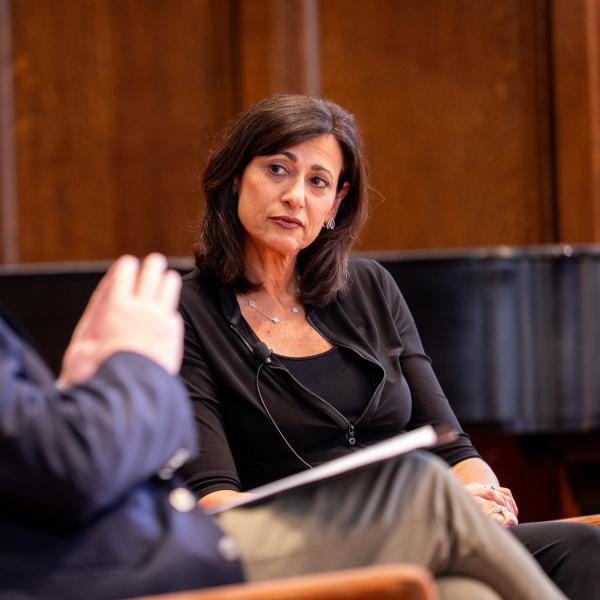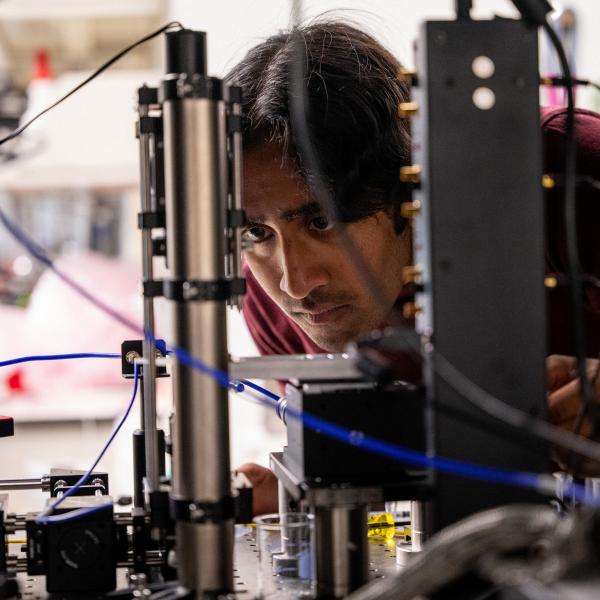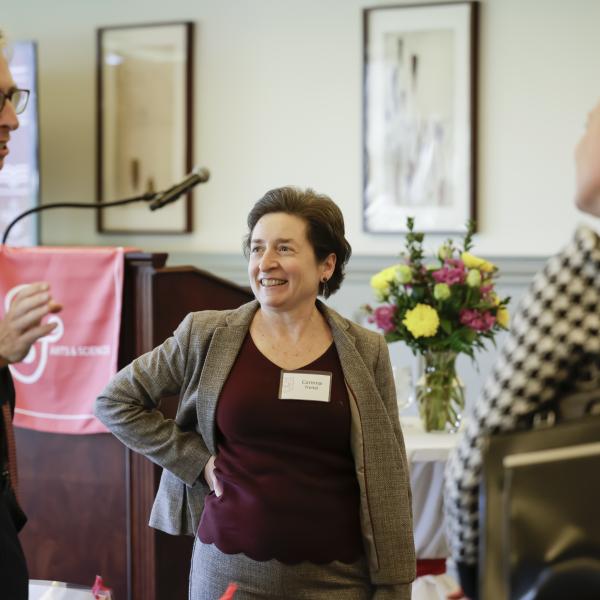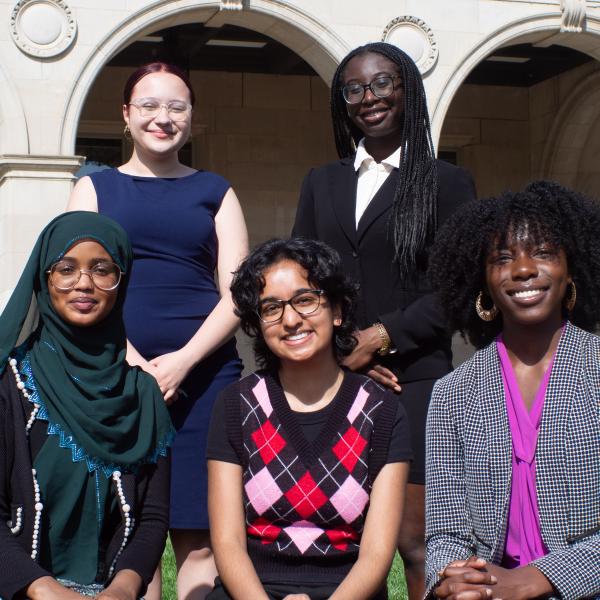As momentum builds for next year's climate event, students and faculty in Arts & Sciences look ahead to opportunities for collaboration and reflect on WashU's climate leadership.
Early next year, leaders from Midwest universities, governments, and businesses will gather to discuss regionwide strategies for combating climate change. Anchored by Washington University, with support from Bloomberg Philanthropies, the Midwestern Collegiate Climate Summit aims to spur actionable ideas and measurable outcomes to address the changing climate and its impacts.
The event will be the largest climate-focused assembly of Midwest universities to date. As hubs of research, teaching, student activity, and community engagement, universities are uniquely positioned to lead this charge – and WashU welcomes the challenge, said Beth Martin, senior lecturer in Environmental Studies and associate director of the WashU Climate Change Program.
“It’s an opportunity to think about how universities can help catalyze the climate discussion and the work universities can help spur in our communities,” said Martin.
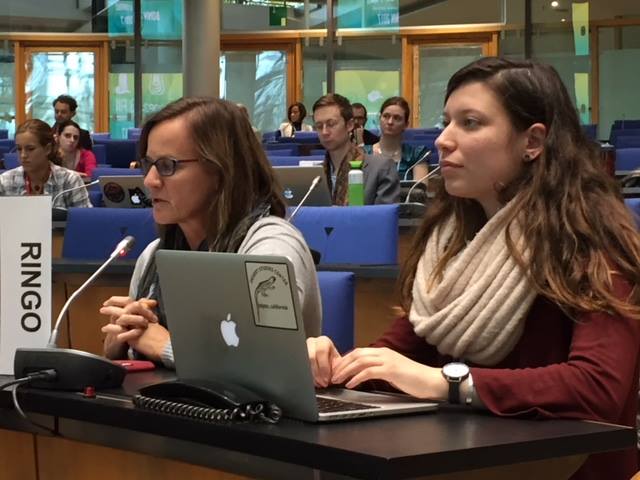
Student interest in the summit is high and continues to build, she said. Martin and other Arts & Sciences faculty members expect that students will play an active role in the summit and in furthering its outcomes.
“Climate change is the biggest challenge facing the planet, and it is the young people – the students – who are driving the conversation about climate action,” said Himadri Pakrasi, the Myron and Sonya Glassberg/Albert and Blanche Greensfelder Distinguished University Professor and director of the International Center for Energy, Environment and Sustainability (InCEES). “The summit will be, we believe, the first of many forums that will build new collaborations, engage partnerships, and provide more experiential opportunities for our students.”
Such opportunities will build on existing WashU efforts. For example, four current InCEES summer research interns are engaged in climate-focused work in Arts & Sciences labs in anthropology, biology, and Earth and planetary sciences. The hope is that many more research-based experiences in climate change will become available to students because of the momentum surrounding the summit, Pakrasi said.
The event is also a chance for the university to highlight its leadership and progress in climate-related initiatives. For over a decade, WashU has been developing programs that address the need for climate action. Since 2007, InCEES (formerly I-CARES) has catalyzed research in energy, environmental, and sustainability science. The university has also made large strides in lowering its carbon footprint.
“The WashU community is at a tipping point where the convergence of executive and faculty leadership, campus sustainability successes, and student advocacy have set the stage for rapid expansion of our climate leadership,” said Phil Valko, assistant vice chancellor for sustainability.
“We are in a position, geographically and academically, to positively impact key issues that affect the entire Midwest.”
With leadership from Valko, the WashU Office of Sustainability, and facilities staff, the Danforth and medical campuses have decreased their emissions by 15.1% since 2010, despite increasing building space by over 10%. WashU is currently home to 24 LEED certified projects, including 11 Gold and 2 Platinum; an additional 12 projects are pursuing LEED certification. And solar energy production on university property keeps growing: When current rooftop installations are complete, the university will have 2.5 megawatts of solar generating capacity, making it the largest producer of on-site solar energy in the St. Louis region.
“The summit will be a chance to showcase the work we are doing at WashU – for example, our world-class research and our community-engaged courses like the Sustainability Exchange – with a wide group of peers tackling similar issues,” said David Fike, professor of Earth and planetary sciences and director of Environmental Studies. “It’s a great opportunity to learn about what's been particularly successful or problematic for them.”
Reflecting on lessons learned, sharing best practices, and establishing support networks among Midwest partners are key goals of the summit. Organizers also hope to secure climate action commitments from university, business, and government leaders across the region.
Located in the heart of the Midwest and bolstered by strong connections with local communities, government leaders, and key agricultural players such as Bayer and the Danforth Plant Science Center, Fike feels WashU will be a strong anchor for the summit.
“We are in a position, geographically and academically, to positively impact key issues that affect the entire Midwest,” said Fike.
Further details about the 2020 Midwestern Collegiate Climate Summit will be announced in the coming months.
